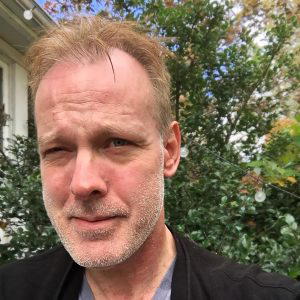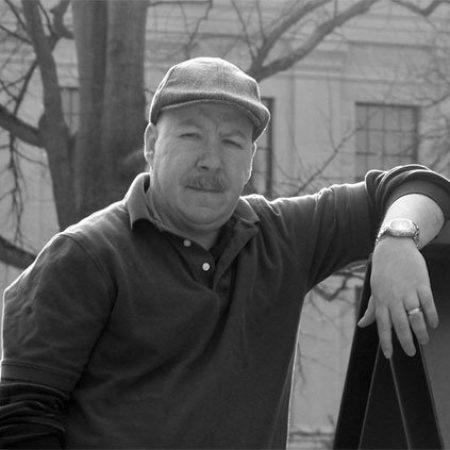A gambler, a liar, and a cheat walk into a bar…
Heath Lowrance has been telling stories most of his 40+ years, and like with good whiskey, the stories just get better with age. And let me tell you, Lowrance’s stories go down smooth and hit you with a kick.
Last year, I shared pages with him in Luca Veste’s OFF THE RECORD anthology, enjoyed his debut THE BASTARD HAND, as well as stories from his collection DIG TEN GRAVES. Not to mention we added Heath Lowrance to our list of offenders recounting the story of a “No-account Sonofabitch” last November.
So let’s find out how this man from the South, living in Detroit, got the gun?
How’d you get the gun? Or rather what drew you to crime fiction?
The same thing that draws me to all good stories, regardless of genre– I enjoy stories about extreme situations, and people behaving in extreme ways. Crime fiction probably does that better than any other kind of story. We sometimes dismiss the idea of melodrama or tragedy, but those qualities are what make fascinating stories, and hardboiled/noir has them in spades.
Were there any writers, present or past, that have inspired or motivated you?
Yes, lots. It’s no secret that I adore the old paperback original writers, cats like Gil Brewer, Day Keene, Charles Willeford, etc. I always go back to them when I’m in need of inspiration. Their modern day counterparts, for me, would be Allan Guthrie, Tom Piccirilli, Ray Banks, just to name a few. There are more great writers around these days than we’ve had since the early ’60’s, so there’s no shortage of choices.
Your blog is called Psycho Noir, where you interview, review and pimp a wide variety of books, authors, and not just crime or noir stories. What does the combination of psycho and noir mean to you? Your readers?
Honestly, I chose the title Psycho Noir only because I liked the sound of it, and the fact that my first novel (THE BASTARD HAND) more or less fell into that genre was a total coincidence. As far what it means, well… I would say psycho noir has everything to do with the protagonist’s state of mind. There’s usually some element of delusion, or a skewed perception of reality that leads him down a very dark, dangerous path. Jim Thompson’s POP. 1280 is a great example, and so is Allan Guthrie’s SLAMMER.
But I find myself moving away from using the terms “noir” and “psycho noir” because, as marketing code-words they’re fairly useless. Your average reader has no idea what you’re talking about when you say them. And the readers who DO know have their very own specific definition in mind already. If I have to hear one more time about how “noir” and “hardboiled” are not the same thing, I think I might snap.
Publisher New Pulp Press released several wonderful books last year, your debut THE BASTARD HAND being one of them. It’s been well received, for those who haven’t read it, can you give us your pitch?
Yeah, New Pulp Press is great, and Jon Bassoff is an absolute pleasure to work with.
THE BASTARD HAND goes a little something like this: A seedy drifter with a tenuous grasp on reality meets up in Memphis with a charismatic preacher bent on booze and women. Together, they travel to a small north Mississippi town, where the preacher, who has a hidden agenda, begins sowing the seeds of discord– all in order to bring down the Wrath of God on their heads. Sex, over-the-top violence and other hijinks ensue.
I’d ask you how you came about writing THE BASTARD HAND, but I doubt a straight answer could be had. So I’ll ask you what do you have in mind for a follow up novel? And when?
My next novel is coming pretty soon from the awesome Snubnose Press. It’s called CITY OF HERETICS. It’s a very different sort of novel than THE BASTARD HAND–a little tighter and meaner. Even though it takes place mostly in Memphis, I’ve moved away from the Southern Gothic thing and into more hard-boiled territory with this one.
You don’t stake your writing to any one particular genre. This last year you wrote two Western novellas Miles to Little Ridge for and from Beat to a Pulp Books, and That Damned Coyote Hill which is currently unavailable. What brought about the diversion?
I just like challenging myself in various genres, I guess. As far as Westerns go, I’ve always liked Western movies but had never read a Western novel until shortly after finishing THE BASTARD HAND. I had an idea for a story that would only really work as a Western, and so thought I should familiarize myself more with the genre before attempting it. On recommendations from James Reasoner and my friend Cullen Gallagher, I was lucky enough to start with some of the best stuff out there. When I realized the rich story potential in the genre, I just sort of went nuts with it and read something like 60 or 70 Westerns in the year that followed. I got excited about it. So you can expect more Westerns from me in the future.
And about That Damned Coyote Hill— it’ll be available again pretty soon, from Beat to a Pulp, along with a second story about the character Hawthorne.
You did a fine job on both. Glad to hear Beat to a Pulp is picking up That Damned Coyote Hill and its follow up. With these various projects going on, what’s your style of writing? Are you an outliner or a seat-of-the-pants kind of guy?
A little of both, really. I usually start a story with only a vague idea of what it’s about. I just go where it takes me at first. By the time I’m about a fourth of the way in, I’m normally able to figure it all out from there and will do a very, very loose outline of the rest, just so I don’t get lost. But I really think it’s important to keep the outline as loose and open as possible, just so you don’t wind up strangling it to death before it has a chance at life.
My wife and I have been watching that show “The Dog Whisperer”, and writing fiction is a lot like walking a dog– you have to let the mutt explore a little bit, but you also have to hold tight to the leash and let it know YOU are the boss.
You must have a well behaved dog. Not only keeping yourself on point with various genres, you wrangle your stories well regardless of length. Are there any different challenges to writing a success short story as opposed to novel length prose?
I think so. Short stories are more unforgiving. They need to be a tight, cohesive set of scenes, far more so than a novel. There’s no room to mess around– you have to go right for the jugular, whereas with novels you can toy with your prey a bit more, bat it around and taunt it. A short story shouldn’t allow anything extemporaneous. I think that’s why a good short story is able to shake us up and leave us slack-jawed, a much different feeling than finishing a good novel.
In fact, I find myself moving toward that philosophy with novel-length stuff as well these days. I think THE BASTARD HAND meandered a bit (in a good way) but CITY OF HERETICS and my other stuff since then are different. Short, fast, savage.
What’s been your most challenging story to tell and why?
I’d say the one I’m working on at the moment, actually. I’m closing in on finishing it, but it’s taken waaay too long and has been amazingly difficult to pull off. It’s a commissioned novella, and it gets hard for me when I know there’s someone waiting for it. I freeze up for some reason, start worrying about whether it’s good enough. That’s a character flaw for a writer that I’m working on fixing. But I think, for all that, I like that it’s something different for me and it’s been a rewarding experience. But every story you write has its own set of challenges, right?
There’s a lot of truth to that. What fun would a story be if it weren’t a challenge? None for you equals none for the reader, I’d imagine? As a reader, who are you reading right now?
I’m just finished up James Reasoner’s collection, TEXAS RANGERS. After that, I’ve got A DIET OF TREACLE lined up, by Lawrence Block. Then maybe an old Elmore Leonard Western called GUNSIGHTS. I just came off a month long non-fiction binge, though– read this great history of the 1930’s called THE DARK VALLEY, by Piers Brendon. About twice a year I get the non-fiction itch and will read five or six before getting back to fiction.
Sounds like wonderful fodder, both fiction and non, to nourish the creative brain. Give us one last bite, do you have any parting words or pearls of wisdom for our readers?
Words of wisdom? Not really. Keep kicking against the pricks? Question authority? Be cool?
The only thing I’ve learned in my 47 years is that there are no platitudes or words of wisdom that stand up to deep scrutiny. So to hell with it.






